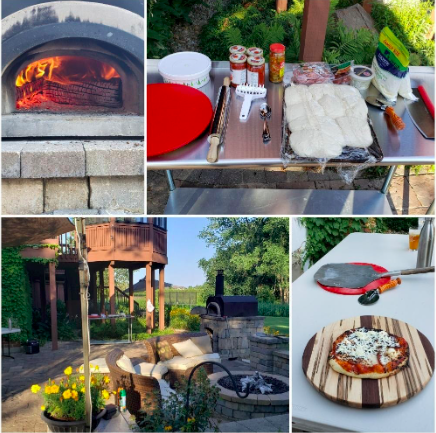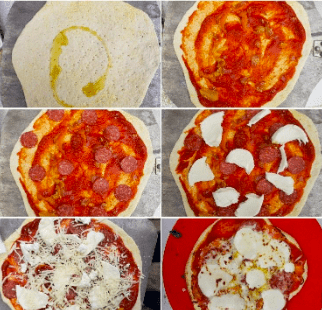About five years ago, I had a ‘Eureka’ moment about one of my favorite topics – Pizza. I thought that building an outdoor pizza oven off my back patio, would be a wonderful hobby and automatically churn out the most amazing pizzas. Certainly that I would live the rest of my days in pizza heaven – or so I thought.
I wasn’t completely right (not the first time that happened).
To make a very long story short and tie it back to another favorite topic – process transformation – let me share a few things I’ve learned. These lessons are courtesy of the many hours I’ve spent making brick oven pizzas from scratch.
1. The Right Environmental Conditions are Essential

It took longer than I care to admit to learn how to create a proper fire, as well as how to heat up the oven. These factors, as you can imagine, are essential to the process. Apologies to any of you who may have been victimized by our early undercooked, bland experimental pizzas. Likewise – during process transformation – the stakeholders, capacity to change, self-awareness, case for change, and other factors are 100% essential. Trying to change, without any one of these is like trying to bake a pizza on a cold pizza slab. Take a look at our Change Readiness Survey for a more detailed look at these factors.
2. Preparation results in a better experience and outcome

As illustrated both above and below, having the right ingredients and proper tools that are organized in a logical order will make all the difference in the output you deliver. The methodology one uses to map, analyze, and improve the process is critical. While the organizational culture and other factors that change are sought, if the facilitator/practitioner knows his or her approach well, they can get the analytical and creative input needed to transform the process. To that end, TSI’s 6-Step Methodology is a solid framework. Yet, depending on circumstances, it can be adapted. Those of us who use it on projects may also adapt it to fit each of our styles. But in the end, we know which tools and techniques work. This way we can leverage these and deliver a meaningful project to our clients.
3. Pizza (& Process) Is Best Consumed When You are Starving
In the early days of our pizza making, when our oven needed an extra hour or more to be at the right temperature, some of our guests got quite hungry (maybe even hangry) while they waited. Then, when the amateur pizza finally came out and was instantly devoured, I was amazed to hear how much folks enjoyed it.

Obviously, the product was not stellar, but the reaction to an average pizza was.
In terms of transformation, this reaction makes me wonder how a better way of process transformation may be considered.
Are your constituents starving for improvement, or they relatively fulfilled? Is the impetus to change being forced upon a group or is there a “pull” for change?
Give that some thought when fashioning your approach or selecting your next area to transform.
If you are ready to transform an area within your organization, let’s connect! If you are still selecting your next area to transform, learn more about how we serve our current clients.
